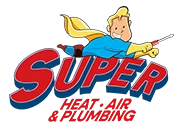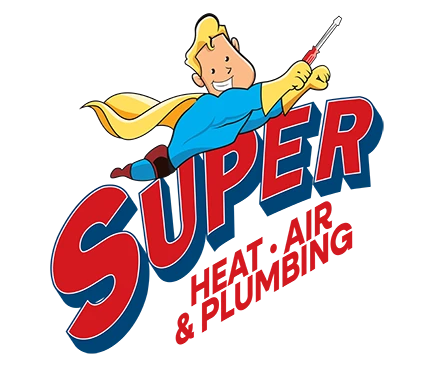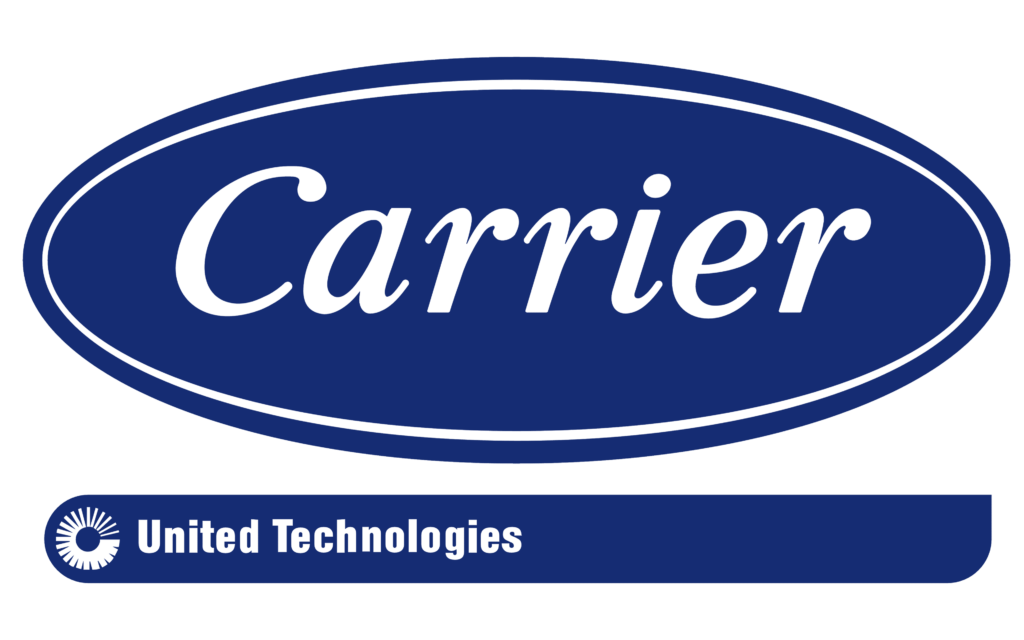Living in Florida, your air conditioner is likely among the things that you appreciate most about your home. Most people are aware that they need to periodically change their air filters and schedule maintenance, but are you aware that the size of your system also matters? And when it comes to your HVAC, bigger isn’t always better.
Our AC pros at Super Heat, Air, and Plumbing discuss the signs that you may have an oversized unit, and how to judge which size unit you need to keep your home cool and comfortable.
Signs of an Oversized AC Unit
Here are a few easy-to-identify signs that your AC may be too big for your house:
#1. Short Cycling
An AC cycle is how long it takes from the time that it is turned on until it meets your desired temperature on your thermostat. At that point, your AC will shut off.
When your unit is too large for your home, it will cool your home down fast, causing the AC to shut off quickly. You might think that this is a good thing, but it causes a lot of stress on your unit.
To test to see if your AC is short cycling, start with observing how long your system takes to cool your home to the set temperature on a hot day. Listen for how long the system runs until it reaches that temperature and shuts off.
As a baseline, 15-20 minutes is standard. If your AC only runs for a few minutes and then shuts off, this could be a sign that your unit is too big.
#2. Humidity
Air conditioners absorb hot air from your home, and when this happens, condensation from this humidity drips from the AC coils into the drip pan. When this pan is full of water, it will drain outside through condensate drain lines.
If your AC is too big, the AC will cycle off before the drip pan is full, causing your home to feel more humid inside.
#3. Higher Energy Bills
The short cycles that we mentioned before will drive up your energy costs. If you have noticed higher power bills than normal, and you aren’t sure why, your AC unit may be too big.
Learn More > AC Mistakes That May Be Increasing Your Home’s Expenses
#4. Fluctuating Temperatures in Different Rooms
Since an oversized unit will constantly short-cycle, the rooms that are furthest away from the thermostat will cool down slower than the interior rooms do. This can cause uncomfortable hot and cold spots throughout your home.
#5. Poor Air Quality
Your AC system uses vents to emit air and return vents to absorb air. Since an oversized unit will shut off too quickly, the air inside your home won’t circulate properly. This can leave a smell of mildew in the air, or even lead to mold.
#6. Loud AC
Yes, you will hear the AC when it is on, but if you must turn up the TV or talk louder when it is on, your system may be too large and is forcing more air through the ducts than they can handle, causing it to rattle loudly.
What Size AC is Best for My Home?
The correct size unit for your home is based on the square footage of your house. For central air conditioning, you will need to calculate the square footage of your entire house.
Say your home is 2,000 square feet. If one ton of cooling capacity can cool 400 square feet, you will need about 5 tons of air conditioning capacity. Multiply this number by 12,000 BTUs, and you will need a unit with 60,000 BTUs.
Before buying a new air conditioning unit, it is always important to speak with the experts, like our team at Super Heat, Air, and Plumbing. There are many factors, including your home’s square footage, that factor into the size of the HVAC that you need.
Related > The Benefits of Switching to Central AC
Tampa Bay AC Services
If you think that your AC system may be too large for your home, call our HVAC pros at Super Heat, Air, and Plumbing for a consultation. We will check your unit to ensure that it is the right size for your home, and if it isn’t, we can recommend a better option.



